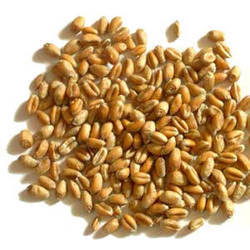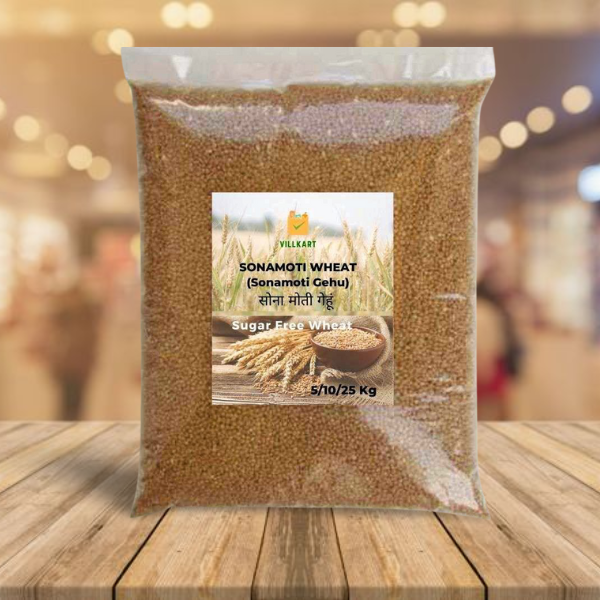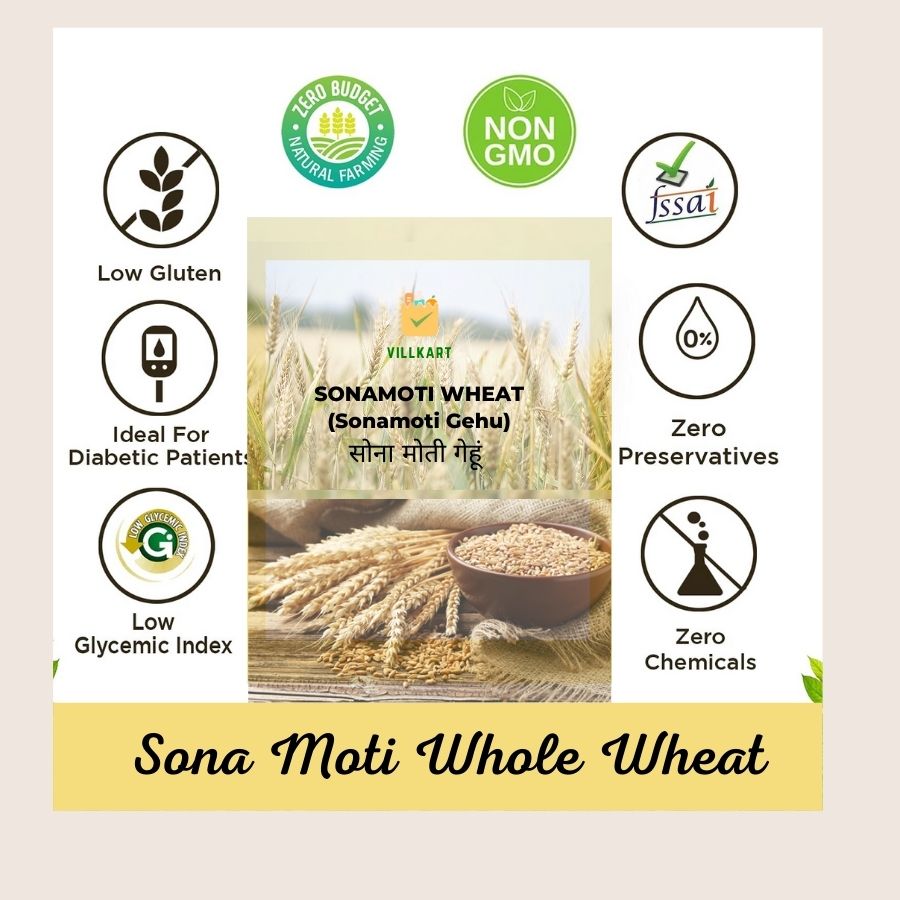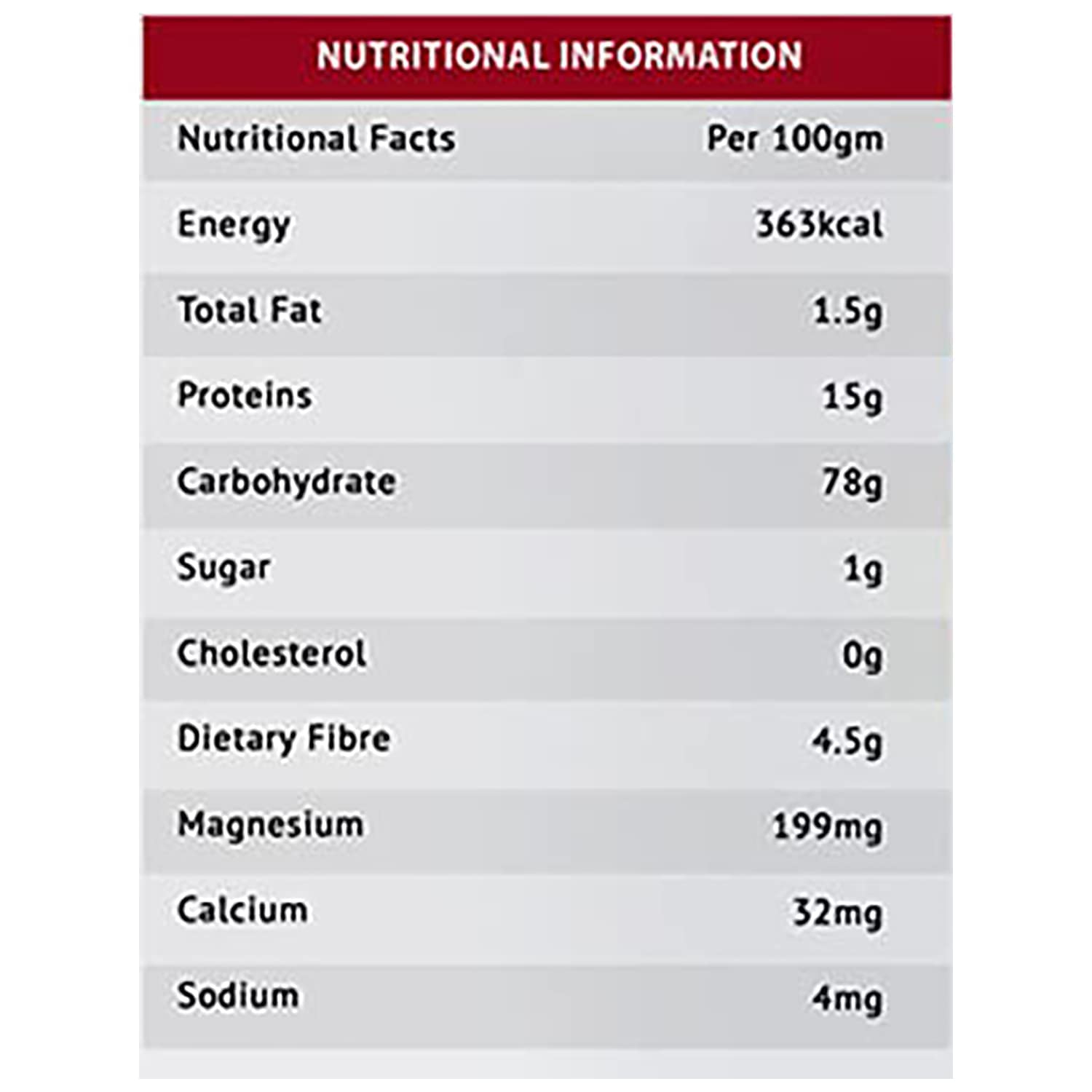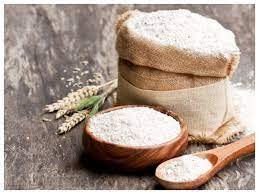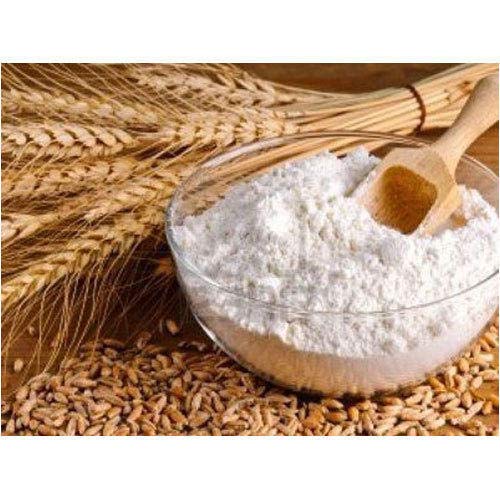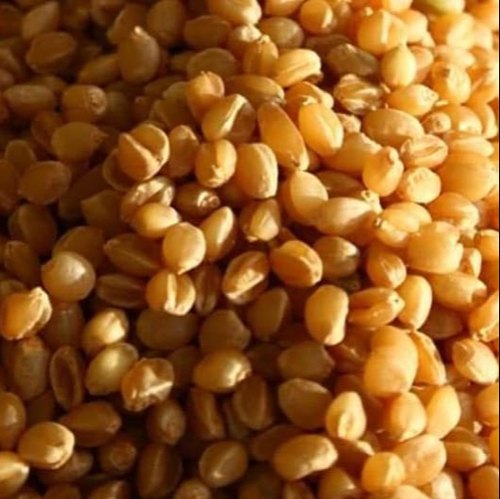Description
Sona Moti Wheat
An ancient grain with a multitude of health benefits:
Emmer Wheat (Triticum dicoccon) is one of the most ancient varieties of wheat across the world.
Its crop has been preserved in Northern India over thousands of years, owing to various health benefits that this grain has. It is traditionally known to be rich in Protein, Magnesium and Iron.
It also has a low Gluten value and helps lower Blood Sugar levels, while helping build immunity. With each pack of this Atta, you not only take a step towards a healthier life but also help in preserving biodiversity.
Sona Moti: Starting with a Handful of Gold
The price for Sona Moti cultivated with natural farming practices catches 75-80 rupees per kilogram, by comparison, the price for other organic wheat fetch 30 rupees per kilogram.
Currently, 20 farmers in Punjab are cultivating Sona Moti for sale through the Art of Living.
Nagpal, a farmer with the Art of Living, describes his initial experiences with Sona Moti.
“Five years ago, I visited Pingalwara ashram in Amritsar with my friends. We visited the ashram to learn about natural farming. The in-charge of that ashram told us about a different variety of wheat which is sugar-free.
They gave us a handful of wheat in a form of parshad (holy gift) and they advised us to grow this wheat for the sake of humanity.
I grew that wheat (parshad) and the first year the yield was only 3 kg. And the second year the yield of wheat was 80 kg and slowly- slowly after five years with the grace of God we have 40 Qt wheat this time.”
Sona Moti possesses nutritional qualities that attract a higher price. The low sugar content of Sona Moti makes it ideal for diabetic patients. Moreover, Sona Moti has three times the folic acid compared to any other grain, and an exceptionally high mineral and protein content.
These qualities would not be known and would not be conveyed to customers if it were not for the work of the Art of Living.
For continued success, the integrity of the product must be maintained. Pingalwara Ashram chose the most suitable farmer to entrust with the seed.
Not all farmers take the care necessary and have the knowledge for seed conservation.
Nagpal has been training farmers in techniques to avoid cross-pollination and seed contamination to ensure the purity of the seed and product integrity.
Indeed, Nagpal felt reluctant to share the seed with farmers who did not have the knowledge to maintain seed purity.
Experts argue that further increases in emmer wheat cultivation require a well-organised, transparent and traceable production chain.
Interestingly, tracing the source of this wheat prior to its cultivation at the Pingalwara ashram has been a challenge. It came to Punjab by way of an unnamed farmer on a Yatra (pilgrimage).
Cycling and walking from Southern India, he brought two plants of the wheat variety.
We are not able to credit this farmer due to a lack of traceability. The future of Sona Moti production will include traceability, so that future farmers are ensured proper credit for their work.
References
- Nesbitt, M. and D. Samuel, From staple crop to extinction? The archaeology and history of the hulled wheats. 1996. p. 41-100.
- Buerli, M. Farro in Italy The Global Facilitation Unit for Underutilized Species, 2007. 10.
- N., E.-H.S., G. C., and H. C. Organic Agriculture and genetic resources for food and agriculture. in International conference on Biodiversity and the Ecosystem Approach in Agriculture, Forestry and Fisheries. 2002. Rome, Italy: FAO.
- Council, N.R., Lost crops of Africa: volume I: grains. 1996: National Academies Press.
- Zaharieva, M., et al., Cultivated emmer wheat (Triticum dicoccon Schrank), an old crop with promising future: a review. Genetic resources and crop evolution, 2010. 57(6): p. 937-962.
- SidhuI, M.S. and V.P. Singh, Fifty years of Punjab Agriculture: An Appraisal. Productivity, 2018. 59(1): p. 21-36
- Jodhka, S.S., Beyond ‘Crises’: Rethinking Contemporary Punjab Agriculture. Economic and Political Weekly, 2006. 41(16): p. 1530-1537.
- Bharti, V., On farm front, red is the new green. The Tribune, 2017. 137(21): p. 2.
- Brown, T., Agrarian Crisis in Punjab and ‘Natural Farming’ as a Response. South Asia: Journal of South Asian Studies, 2013. 36(2): p. 229-242.
